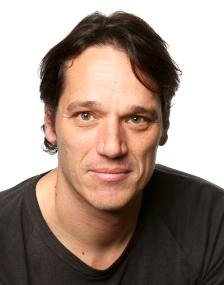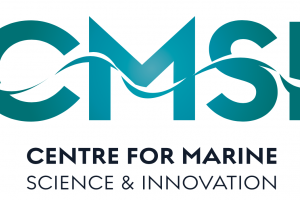
My Expertise
Microbiology; Genomics; Marine Ecology
Fields of Research (FoR)
Microbial Ecology, Genomics, Bioinformatics, Microbiology, Aquaculture, Marine and Estuarine Ecology (incl. Marine Ichthyology), Carbon Sequestration ScienceSEO tags
Biography
I am Professor for Microbiology at the the School of Biological, Earth and Environmental Sciences (BEES).
I hold a Masters degree from the Rheinische Friedrich Wilhelms University in Bonn, Germany (1996) and obtained a PhD from University of New South Wales (2001). From 2001-2004 I worked as a Senior Scientist at the biotech company Nucleics Pty Ltd. In 2004 I returned to academia as a Senior Research Associate within the Centre for Marine...view more
I am Professor for Microbiology at the the School of Biological, Earth and Environmental Sciences (BEES).
I hold a Masters degree from the Rheinische Friedrich Wilhelms University in Bonn, Germany (1996) and obtained a PhD from University of New South Wales (2001). From 2001-2004 I worked as a Senior Scientist at the biotech company Nucleics Pty Ltd. In 2004 I returned to academia as a Senior Research Associate within the Centre for Marine Bio-Innovation (CMB) at UNSW and received a fellowship from the American Australian Association in 2005. I went on to become a Senior Research Fellow after being awarded a fellowship from the Australian Research Council (ARC) (2006-2009). In December 2009, I took on a Senior Lecturer position at the School of Biotechnology and Biomolecular Sciences (BABS) at UNSW, was appointed an Associate Professor in 2013 and awarded an ARC Future Fellowship in 2014. In 2016, I became the Director of the CMB and moved to BEES, where I was promoted to Professor in 2017. During 2018-2020 I formed the Centre for Marine Science and Innovation (CMSI) and directed it during this period.
My Research Activities
My research has focused on understanding the central role that microbial communities (microbiomes) play in influencing the performance and health of higher host organisms, in particular in the marine environment. My students, co-workers and I explore these microbiomes by -omcis approaches and use bioinformatics and modelling to make predictions about their functional and ecological properties. We then perform directed experiments to support our predictions. Current projects include:
1. Molecular interaction on bacteria-sponge symbiosis
Marine sponges acquire nutrients by filtering and eating bacteria from the seawater, but they also harbour a remarkable diversity of bacterial symbionts that don’t get digested. We have discovered that the genomes of bacterial symbionts of sponges carry a large number of proteins that are similar to eukaryotic proteins that can control phagocytosis and cytoskeletal formation (Fan et al. PNAS USA 2012, Nguyen et al. Molecular Ecology 2013, Reynolds & Thomas Molecular Ecology 2016). We hypothesise that symbionts use these proteins to “manipulate” the sponge and test this with a range of molecular and microscopic approaches. The outcome of this research will provide important information on the mechanisms and evolution of microbe-host interactions.
2. Symbiotic carbon dioxide fixation in the deep-sea
The deep-sea is a cold, dark and nutrient-poor environment, yet many higher organisms, such a sponge and corals thrive in it. Many microorganisms can fix carbon dioxide using unusual biochemical pathways and inorganic compounds as energy source (Garritano et al. PNAS Nexus 2022). We hypothesised that many deep-sea organisms rely on symbiotic interactions with these carbon-fixing microorganisms to support their growth. We explore this hypothesis through deep-sea expeditions, -omcis analysis, metabolic modelling and isotope analysis. The outcome of this research will provide insight into the potential of the deep sea to sequester carbon dioxide and thus contribute to mitigating global warming.
3. Probiotics for the marine environment
Many marine organisms suffer from diseases, and this is often related to the spread of pathogenic microorganism or anthropogenic impacts. Affected organisms include important habitat-formers, such as corals or seaweeds, as well as aquaculture species, such as shrimps, lobster or fish. In humans, the use of probiotics to control the microbiome composition has been increasingly recognised to help suppressing diseases and increasing general health. We are applying similar principles of microbiome manipulation to improve the health of seaweeds (Li et al. ISME J 2022), shrimp (Mangott et. al. Algal Research 2020), corals (Peixoto et al. Annual Review of Animal Bioscience, 2021) other species. This work is often done in collaboration with partner from the aquaculture industry. The outcome of this research contributes to protecting our marine environment and supporting substantial food production in aquaculture.
My Research Supervision
Areas of supervision
Doctor of Philosophy (PhD)
Masters by Research
Currently supervising
PostDocs:
Dr. Emmanuelle Botte
Dr. Jadranka Nappi
Dr. Michelle Allen
Dr. Shan Zhang
PhD students:
Alessandro do Nascimento Garritano
Katrina Christi
Sykur Sykur
Yibo Wu
Yunke Yia
Yu-Jing (Penny) Chiou
Zhelun Zhang
